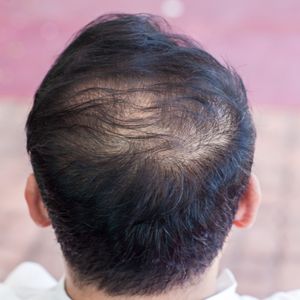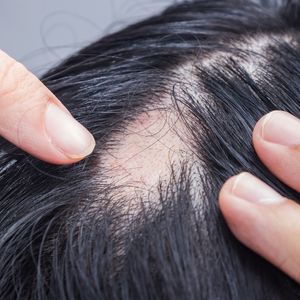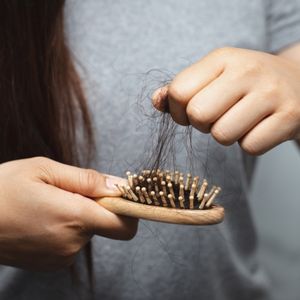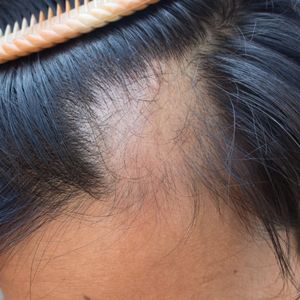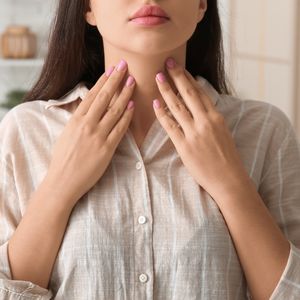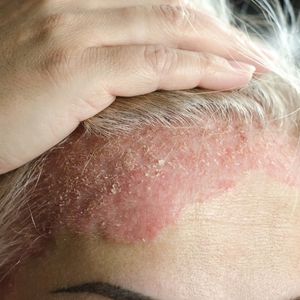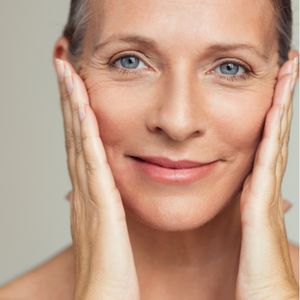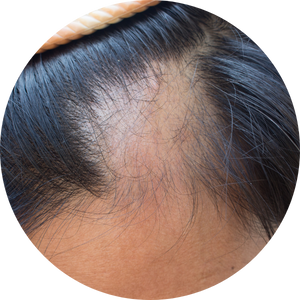
Regain Your Confidence: Expert Solutions for Hair Loss.
Hair loss is a common and often distressing condition that can affect both men and women at any age. It can manifest in various ways, from gradual thinning to sudden bald patches, and can significantly impact self-esteem and body image. Understanding the specific type and cause of hair loss is crucial for effective management.
At SkinQure, Dr. Paul Charlson, a leading UK cosmetic dermatologist with extensive experience in trichology (the study of hair and scalp), offers expert diagnosis and effective management strategies for various forms of hair loss. His patient-centred approach focuses on identifying the underlying factors, developing tailored solutions to promote hair growth, reduce shedding, and restore hair health.
Understanding Hair Loss: Types and Causes
Hair loss can be complex, with many potential causes and types:
-
Male and Female Pattern Hair Loss:
The most common type, genetically inherited, and linked to hormonal sensitivity (dihydrotestosterone or DHT). It typically presents as a receding hairline and thinning crown in men, and diffuse thinning over the scalp, often widening at the parting, in women. In women the hair loss causes are more complex and maybe due to loss of oestrogen and other factors. -
Alopecia Areata:
An autoimmune condition where the immune system mistakenly attacks hair follicles, leading to sudden, patchy hair loss on the scalp or body. -
Telogen Effluvium:
A temporary condition characterised by widespread hair shedding. It often occurs a few months after a significant physical or emotional stress, such as childbirth, severe illness, surgery, drastic weight loss, or certain medications. -
Traction Alopecia:
Hair loss caused by prolonged or repetitive tension on the hair follicles from tight hairstyles (e.g., braids, ponytails, dreadlocks). -
Nutritional Deficiencies:
Lack of essential vitamins and minerals like iron, zinc, or biotin can contribute to hair shedding. Iron deficiency is a common cause and often low normal serum ferritin can cause loss of hair. -
Thyroid Disorders:
Both an overactive or underactive thyroid can lead to diffuse hair loss. -
Scalp Conditions:
Fungal infections (tinea capitis), psoriasis, or seborrhoeic dermatitis can affect scalp health and lead to hair loss. -
Frontal Fibrosising Alopecia:
This condition mainly affects women after the menopause. It causes scarring and loss of hair at the frontal margins. Treatment is a challenge early diagnosis is important. -
Medications:
Certain drugs, including some for high blood pressure, cancer, depression, or arthritis, can cause hair loss as a side effect. -
Ageing:
As part of the natural ageing process, hair follicles can shrink, and hair growth cycles shorten, leading to thinner, finer hair.
Expert Dermatological Assessment and Management at SkinQure
At SkinQure, Dr. Charlson conducts thorough dermatological assessments of the scalp and hair to accurately diagnose the type and underlying cause of your hair loss. This precise evaluation is crucial for developing the most effective and individualised management plan. This may involve:
- Detailed history taking regarding hair loss patterns, medical conditions, and lifestyle.
- Physical examination of the scalp and hair.
- Dermoscopy (using a special magnified tool to examine hair follicles and scalp).
- Blood tests to check for nutritional deficiencies, hormonal imbalances, or thyroid issues.
- Occasionally, a scalp biopsy for definitive diagnosis in complex cases.
His expertise encompasses a range of evidence-based strategies aimed at:
- ✓ Reducing hair shedding.
- ✓ Stimulating new hair growth.
- ✓ Improving hair density and thickness.
- ✓ Managing underlying scalp conditions.
- ✓ Restoring hair health and confidence.
During a detailed consultation, Dr. Charlson will discuss your specific concerns, explain the diagnosis, and recommend the most appropriate treatment approach for your condition and desired outcomes.
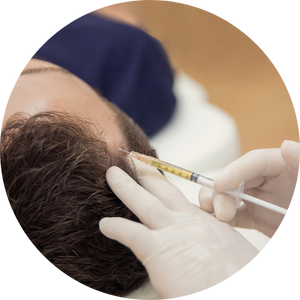
Treatment
Effective treatments for hair loss are varied and often involve a multi-pronged approach, tailored to the specific diagnosis and individual needs. Treatments may include:
- Topical Minoxidil: An over-the-counter solution or foam that can be applied directly to the scalp. It is approved for male and female pattern hair loss and works by stimulating hair follicles and prolonging the growth phase of hair.
- Oral Finasteride (for Men and post menopausal women): A prescription medication primarily for male pattern hair loss. It works by inhibiting the enzyme that converts testosterone to dihydrotestosterone (DHT), the hormone largely responsible for shrinking hair follicles in androgenetic alopecia. Results typically require consistent use over several months.
- Dutasteride: Similar to finasteride, but may be used off-label for hair loss in some cases.
- Platelet-Rich Plasma (PRP) Therapy: Involves drawing a small amount of your blood, processing it to concentrate the platelets2 (which are rich in growth factors), and then injecting3 the PRP into the scalp. This can stimulate dormant hair follicles and improve hair density.
- Exosomes: Packets of DNA/RNA and other factors which stimulate hair follicles.
- Low-Level Laser Therapy (LLLT): Devices like laser combs, helmets, or caps emit low-level laser light that can stimulate hair follicles, reduce inflammation, and promote hair growth.
- Nutritional Supplements: If blood tests reveal deficiencies, supplements like iron, biotin, or vitamin D may be recommended.
- Spironolactone (for Women): An oral medication that can be prescribed off-label for female pattern hair loss, particularly when hormonal factors are suspected. It works as an anti-androgen.
- Topical Corticosteroids: Used to reduce inflammation in autoimmune hair loss conditions like alopecia areata.
- Scalp Injections (e.g., corticosteroids): Direct injections into patches of alopecia areata to suppress the immune response.
Schedule a Consultation
If you are experiencing hair loss and are seeking expert diagnosis and effective solutions, we encourage you to schedule a consultation with Dr. Paul Charlson at SkinQure for a thorough dermatological evaluation and a personalised management plan to help you restore your hair health and confidence.

